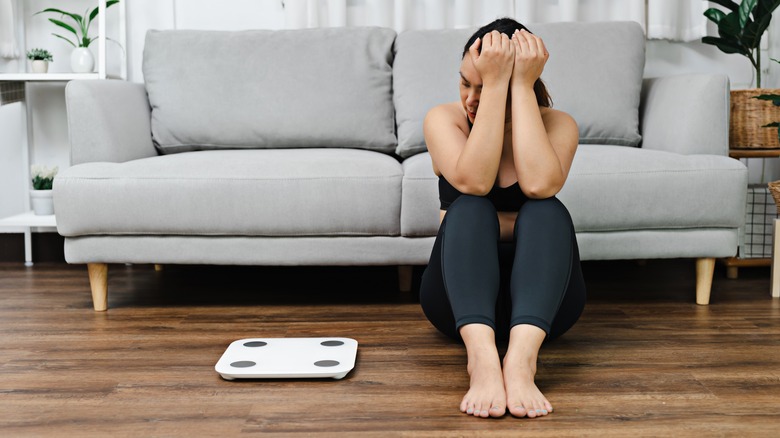What You Should Know About The Correlation Between Hormones And Weight
You may be familiar with the phrase, "If losing weight was easy, everyone would be fit." Oh, if only it were that simple. There are a variety of factors beyond good old-fashioned motivation and willpower that can prevent you from losing weight — especially if you're a woman. Enter hormones. Harvard-trained integrative medicine doctor Sara Gottfried, author of "Women, Food, and Hormones", told MindBodyGreen that there are actually a bunch of hormones that can keep women from burning fat.
Sometimes, when things are happening beneath the surface, it can feel like they're out of our control, but that's far from the case when it comes to hormones and weight. While hormones seem to live in a world of their own and don't always make our lives easier (here's looking at you, acne and mood swings), the truth is that the more you understand how they work, the more power you'll have over your body and your life.
Catering to your hormones for weight loss
According to MindBodyGreen, cortisol is the stress hormone that tells you to eat right now. When this happens, insulin dials up and your body stores fat. Managing stress can help your cortisol levels chill out. Banner Health also recommends limiting alcohol, caffeine, and sugary foods, and eating more foods with vitamins A, B, C, E, magnesium, and omega-3 fatty acids.
Then, per Byju's, there's estrogen (which regulates your period and is secreted before ovulation) and progesterone (which supports pregnancy and is secreted after ovulation). When estrogen is too high or progesterone is too low, your body can become weight loss resistant and your appetite increases. Healthline recommends the Mediterranean diet, fiber-rich diets, and plant-based diets to help ensure estrogen remains balanced. Eating dark, leafy greens can also help ensure your hormones function properly, adds MindBodyGreen.
Speaking of diets, Dr. Gottfried says women on a keto diet should carb cycle instead of doing classic keto to prevent leptin levels from getting too low, which can result in anxiety, poor sleep, and uncontrollable hunger. To do this, MindBodyGreen says to eat 30 to 60 grams of total carbs per day, but increase that to 75 to 120 grams on days 19 and 20 of your menstrual cycle (the first day of your period is day 1). This will also help your body produce enough progesterone. If you don't see a difference, increase your carbs on days 1 and 2 instead.


